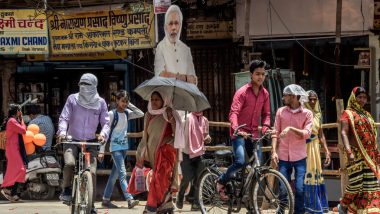The National Population Register (NPR) is a government document (census) in which the details of every Indian would be filed. The main aim of the nation-wide exercise is to create a detailed identity data of every "usual resident" of the country, the Census Commission said. The database will have demographic as well as biometric details of the individuals including name, age, address, profession, education details and more.
It must be noted that under the NPR, a "usual resident" is a person who has lived in an area for at least six months or more, or a person who intends to live in an area for the next six months or more. Under the recently approved NPR process, it becomes mandatory for all the residents of India to register in the NPR.
After the CAA move, the Centre will now focus on NPR renewal. The government has decided to prepare a NPR by September 2020. For the updation process, a census is likely to conducted across all states and UTs from April 1, 2020, to September 30, 2020. Reports inform that the government has been preparing for the NPR amid the ongoing protests over the CAA and National Register of Citizens (NRC).
What is Census?
Census provides a snapshot of the country's population and housing at a given point of time. According to UN data, India 2019 population is estimated at 1,366,417,754 people at mid year, which is quivalent to 17.71% of the total world population.
NPR started in 2010
The National Population Register (NPR) is nothing new for India. This iniatiative was started in 2010 under the Manmohan Singh government. Any resident residing in any area in the country for six months or more is required to register with the NPR. According to reports, the data for NPR was first collected in 2010 during the second term of the UPA government.
Process of NPR in India
In India, census is conducted once in every 10 years. The last census was done in 2011 and the next one will be conducted in 2021. For the upcoming census, the exercise is expected to begin in September 2020 starting with the hilly areas including Jammu and Kashmir followed by Uttarakhand and Himachal Pradesh.
A field work for house-to-house enumeration throughout the country will be done except Assam. The door-to-door survey will be taken up to all persons who are usually residing within the jurisdiction of local registrar shall be undertaken between April to September 2020.
How is NPR Prepared
NPR, a register of usual residents of the country is being prepared at the local (village/sub-town), sub-district, district, state and national level under provisions of the Citizenship Act 1955 and the Citizenship (Registration of Citizens and issue of National Identity Cards) Rules, 2003.
Several media reports claim that the NPR is seen as the first step towards a nationwide exercise to implement the National Register of Citizens (NRC) as it is on the same path as that of Assam which updated the citizens' list before the Centre implemented NRC in the northeastern state.
The motive of the NPR is similar to that of the Unique Identification Authority of India (UIDAI), which issues Aadhaar cards. The NPR and UIDAI work closely together to create a database of Indian residents. The approval for the NPR comes almost after a fortnight when the Citizenship Amendment Bill (CAB) was passed in the Parliament, making it the Citizenship Amendment Act (CAA).
(The above story first appeared on LatestLY on Dec 24, 2019 03:05 PM IST. For more news and updates on politics, world, sports, entertainment and lifestyle, log on to our website latestly.com).













 Quickly
Quickly


